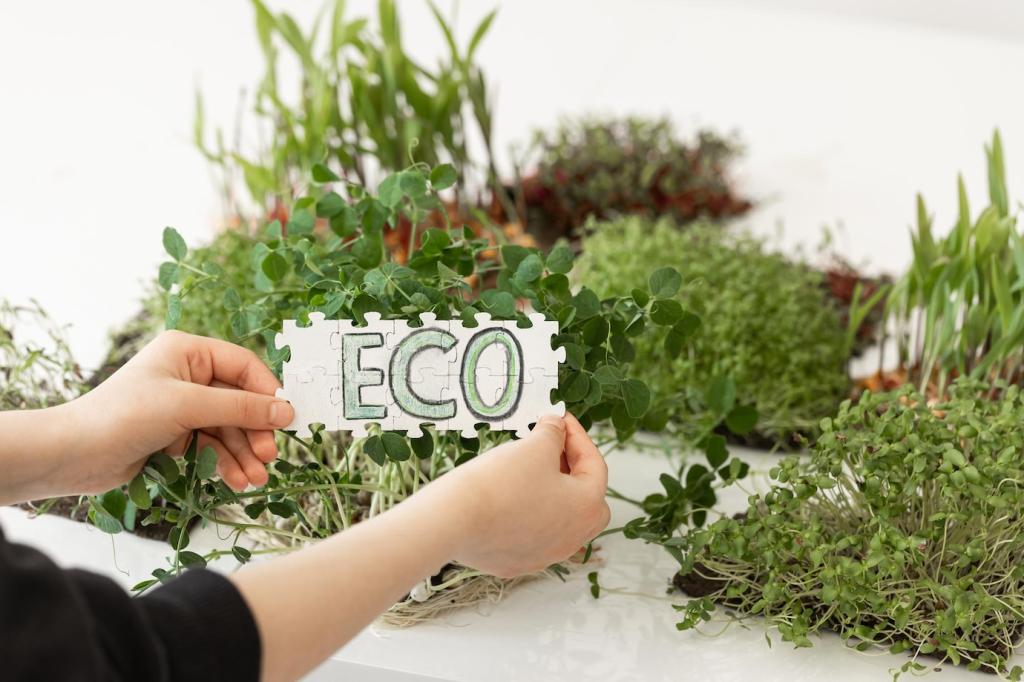SEO Strategies for Eco-Friendly Product Descriptions
Chosen theme: SEO Strategies for Eco-Friendly Product Descriptions. Welcome to a practical, inspiring guide to crafting planet-positive copy that ranks, resonates, and converts—without greenwashing. If you care about visibility and verifiable impact, you’re in the right place. Share your challenges or subscribe for weekly experiments, teardown insights, and field-tested frameworks.



Write Descriptions That Convert Without Greenwashing
Lead with meaningful outcomes: “Cuts plastic waste by 72% per refill,” then substantiate with certifications, test methods, and material specs. This approach elevates trust, supports rankings, and turns scanners into confident, value-aligned buyers.
Write Descriptions That Convert Without Greenwashing
Replace empty adjectives like “green” or “eco” with specifics such as “FSC-certified bamboo handle” or “recycled aluminum bottle, curbside recyclable in most municipalities.” Clear language reduces skepticism and aligns with search quality guidelines.
Write Descriptions That Convert Without Greenwashing
Weave short, authentic anecdotes: “A customer switched to our refill pouches and diverted 18 bottles in a year.” Stories make benefits tangible, spark shares, and encourage readers to comment with their own sustainability wins.
Clear Hierarchy and Scannable Sections
Organize details with headings like Materials, Sourcing, Packaging, End of Life, and How to Recycle. Scannability improves dwell time and lets readers quickly verify the eco claims that matter most to them.
Schema That Highlights Eco Facts
Implement Product, Offer, AggregateRating, and FAQPage schema; include environmental details in FAQs such as recyclability or certifications. Enhanced snippets attract qualified clicks and reduce uncertainty before visitors even land on your page.
Faceted Navigation without Cannibalization
For filters like “plastic-free” or “vegan,” manage duplicates with canonical tags and thoughtful index rules. Preserve crawl budget, prevent keyword cannibalization, and guide users toward the exact sustainable variant they want.

Certifications That Actually Mean Something
Show recognized marks like FSC, Fair Trade, or USDA Organic, and briefly explain why each matters. Link to verification pages or audit summaries so skeptical researchers—and search quality raters—can validate your assertions quickly.
Material and Supply Chain Traceability
Share origin, plant or mill, and transport modes when possible. A simple timeline graphic or bullet list can make complex chains understandable and searchable, while inviting readers to ask questions you can answer openly.
Lifecycle and End-of-Life Guidance
Outline use, maintenance, repair, and disposal steps, including municipal or mail-in options. Searchers love actionable sustainability instructions, and this content earns engagement, links, and featured snippets over time.

Images, Media, and Performance with a Green Twist
Include images that show material textures, packaging layers, and recycling steps. Pair with alt text that describes the sustainability angle in plain language, helping both search engines and screen readers convey meaning accurately.
Images, Media, and Performance with a Green Twist
Use next-gen formats, responsive sizes, and lazy loading. Measure Core Web Vitals, compress responsibly, and avoid auto-play videos. Invite readers to report slow spots and subscribe for optimization tips delivered monthly.
Local and International SEO for Sustainable Shoppers
Optimize for queries like “refill hand soap near me” or “zero-waste store pickup.” Maintain accurate local profiles, hours, and attributes, and invite customers to comment with refill tips or neighborhood partnerships worth highlighting.
Local and International SEO for Sustainable Shoppers
Use hreflang, local units, regional certifications, and country-specific disposal guidance. Words like “biodegradable” may have regulatory nuances, so adapt copy responsibly and invite regional readers to share clarifications or updates.


Metrics that Matter for Eco Descriptions
Monitor organic CTR, conversion rate, assisted conversions, returns due to misunderstanding, and FAQ engagement. These indicators reveal where clarity improves impact and where your environmental messaging needs refinement.
A/B Tests with Ethics in Mind
Experiment with headlines, proof placement, and benefit framing without inflating claims. Share results transparently in your newsletter, invite readers to vote on next tests, and document learnings in a public changelog.
Feedback Loops with Real Shoppers
Invite customers to comment on what eco details helped them decide and what felt unclear. Close the loop by updating pages and crediting contributors, building community trust and organic advocacy over time.

Founders, Craftspeople, and Material Journeys
Tell how a supplier saved offcuts, or how your team re-engineered packaging to eliminate plastic tape. Personal narratives earn links, brand searches, and comments from readers who crave credible, heartfelt progress.

Community Voices and User-Generated Proof
Feature customers’ before-and-after waste reductions or creative reuses of packaging. Encourage submissions with clear prompts, then weave quotes into product pages to strengthen relevance and authenticity for long-tail eco queries.
